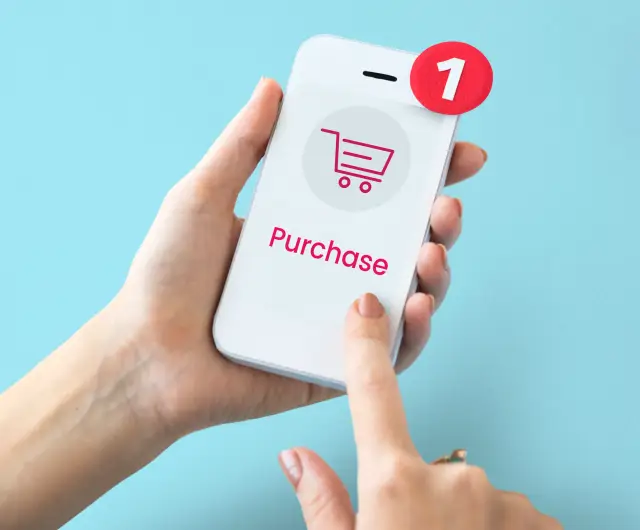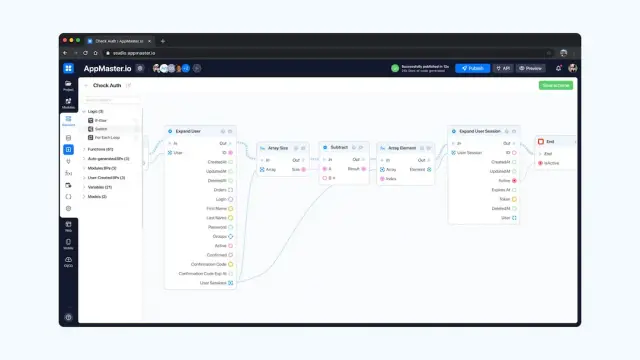In-App Purchase Security: Protecting Transactions and User Data
Explore the best practices for securing in-app purchases in mobile applications. Ensure the protection of transactions and user data by implementing security measures.

Common Threats in In-App Purchases
In-app purchases are a crucial monetization strategy for many mobile applications, providing an additional revenue stream beyond ads and upfront app sales. But these transactions also present various security risks that can harm the app developers and users. Some of the common threats in in-app purchases include:
- Fraudulent transactions: Hackers may exploit vulnerabilities in the payment process to carry out unauthorized transactions or bypass payment systems and obtain app features and virtual goods for free. These fraudulent activities can result in revenue loss for the app developer and disputes with payment providers.
- Abuse of authentication systems: Weak or compromised authentication measures can allow attackers to impersonate legitimate users, making unauthorized purchases or modifying account details. A powerful authentication system is essential to ensure the confidentiality of user data during in-app transactions.
- Information theft: Hackers can intercept sensitive user data, such as credit card information, during payment. Encrypted communication and secure user data storage are essential countermeasures against information theft.
- Tampering with the mobile application: Attackers can manipulate the application's code or alter its behavior, enabling them to alter prices and bypass payment restrictions. Developers can defend against these attacks by implementing the app's integrity checks and runtime protection mechanisms.
Addressing these threats requires comprehensive security measures encompassing multiple layers of protection. Developers should adopt practices that ensure data integrity, confidentiality, and privacy, while also implementing mobile security best practices for in-app purchases.
Ensuring Data Integrity and Confidentiality
Maintaining data integrity and confidentiality during in-app transactions is crucial for protecting user data and preventing unauthorized access. App developers can take several measures to achieve this:
- Secure server-side APIs: Implement secure server-side application programming interfaces (APIs) to handle in-app transactions, minimizing the possibility of client-side tampering. A secure API ensures that sensitive data is processed and stored securely on the server, while attackers cannot directly access it.
- Transport layer security: Use secure communication protocols like HTTPS to provide encryption and data integrity for data transmitted between the mobile app and the server. This layer of protection helps guard against man-in-the-middle (MITM) attacks and eavesdropping.
- Encryption and tokenization: Encrypt sensitive data, such as payment tokens or user credentials, before storing it. Tokenization can also enhance security by replacing sensitive user data with non-sensitive tokens, reducing the risk of data theft.
- Strong authentication measures: Implement authentication measures for in-app transactions, such as multi-factor authentication (MFA) or biometric authentication, to minimize the abuse of authentication systems.

Developers must prioritize data protection during the entire transaction process, from the user's device to the backend server. They should also consider mobile security best practices for in-app purchases to ensure a comprehensive security approach.
Mobile Security Best Practices for In-App Purchases
Implementing security best practices for in-app purchases is essential for reducing the potential transaction risks and protecting user data. Some practices to consider include:
- Choose a secure payment provider: Work with reputable and secure payment providers, like Stripe or Braintree, that offer fraud prevention features, PCI DSS compliance, and tokenization of sensitive card information.
- Handle sensitive data securely: Ensure that sensitive user and payment information are transmitted, stored, and processed. Use encryption, strong authentication methods, and tokenization to enhance the security of sensitive data whenever possible.
- Deploy security measures for frontend and backend: Secure both the frontend and backend of your app to prevent unauthorized access to user data. Implement strong authentication and access controls, secure server-side APIs, and encrypted communication between the app and server.
- Protect against unauthorized access: Implement app sandboxing, code obfuscation, root/jailbreak detection, and runtime integrity checks to safeguard your mobile app from unauthorized access and tampering.
- Conduct regular penetration testing and vulnerability assessments: Perform regular security assessments and penetration tests to identify vulnerabilities in your app, allowing you to take mitigating actions before adversaries exploit the vulnerabilities.
Following these security best practices, app developers can protect their users, transactions, and revenue while providing a seamless and safe in-app purchase experience. In addition to these measures, utilizing a no-code platform like AppMaster can further streamline the implementation of strong security measures without compromising functionality and efficiency.
Integrating Security in AppMaster's No-Code Platform
When developing mobile applications, ensuring the security of in-app purchases is crucial for protecting transactions and user data. With AppMaster's no-code platform, developers can integrate strong security measures and maintain privacy compliance without any hassles. AppMaster allows customers to visually create data models, business logic, REST API, and WSS endpoints with ease, ensuring a secure and efficient development process.
Generating Secure Backend Applications
The powerful backend generation capabilities of AppMaster enable developers to create secure servers for in-app purchases. Using the visual BP Designer, they can create business processes and server endpoints that enforce data validation, manage role-based access control, and implement secure coding practices, avoiding common vulnerabilities such as injection attacks, broken authentication, and improper access control.

Frontend Security and User Authentication
AppMaster's no-code platform allows developers to build secure web and mobile applications with built-in security features. By designing secure UIs using drag-and-drop functionality and creating business logic for individual components in the Web BP designer and Mobile BP designer, developers can ensure the safety of their applications without compromising user experience. AppMaster also simplifies managing user authentication, seamlessly integrating secure login and registration workflows with role-based access control.
End-to-End Encryption and Secure APIs
AppMaster enables developers to generate mobile applications employing end-to-end encryption and secure APIs. Built-in support for transport layer security (TLS), strong encryption algorithms, and secure key management ensures that sensitive data remains encrypted both at rest and during transmission. Furthermore, the automatically generated API documentation allows developers to design and implement secure RESTful services, avoiding vulnerabilities like insecure direct object references and sensitive data exposure.
Staying Updated with Industry Security Standards
AppMaster ensures that the generated applications adhere to industry security standards and best practices, minimizing the risk of data breaches and compliance issues. By constantly staying updated with the latest security trends and integrating essential security features, AppMaster offers a reliable and secure platform for developing in-app purchase solutions.
Key Considerations when Implementing In-App Purchase Security
Implementing security measures for in-app purchases is crucial for both developers and businesses. Here are some key considerations and best practices to follow when implementing in-app purchase security:
Choose the Right Payment Provider
Choosing the right payment provider is one of the most important considerations when implementing in-app purchase security. Look for providers that offer a reliable, secure, and compliant payment infrastructure, and support popular payment methods like credit cards, debit cards, digital wallets, and direct carrier billing. Ensure that your chosen provider complies with the Payment Card Industry Data Security Standard (PCI DSS) and integrates with your preferred platforms (iOS, Android, etc.)
Ensure GDPR and Other Privacy Compliance
Complying with privacy regulations like the General Data Protection Regulation (GDPR) is essential for protecting user data and avoiding penalties. Ensure your mobile application, including in-app purchases, complies with applicable privacy regulations by implementing features such as user consent, data encryption, and secure handling of personally identifiable information (PII).
Protect User Data and Sensitive Information
In-app purchases often involve processing sensitive information like user's credit card details and personal data. Implement strong security measures to protect this data, such as using encryption, tokenization, and secure server-side storage. Always transit sensitive data over encrypted channels like TLS and encrypt data at rest using algorithms like AES.
Handle Refunds and Chargebacks Securely
Refund requests, disputes, and chargebacks are inevitable parts of conducting in-app purchases. Set up policies and procedures to handle these situations securely and efficiently, minimizing the impact on your users, avoiding potential fraud, and maintaining a positive user experience. Implement secure authentication mechanisms and track all refund-related activities to detect and mitigate fraud attempts.
Stay Updated with Industry Security Standards
Security standards and best practices are continually evolving, so it's essential to stay informed and ensure that your app's in-app purchase security measures remain up-to-date. Follow industry guidelines like the OWASP Mobile Security Project and subscribe to relevant publications and security forums to stay informed about the latest trends, vulnerabilities, and solutions.
By paying attention to these key considerations and incorporating security best practices into your mobile application development process, you’ll ensure that your in-app purchases remain secure and compliant and offer your users a safe and seamless experience. With AppMaster's no-code platform, developers can confidently create secure mobile applications for in-app purchases while maintaining the flexibility and scalability needed for success.
FAQ
Common threats in in-app purchases include fraudulent transactions, abuse of authentication systems, information theft, and tampering with the mobile application.
To ensure data integrity and confidentiality, developers should use secure server-side APIs, transport layer security, encryption, tokenization, and strong authentication measures.
Best practices include working with secure payment providers, handling sensitive data securely, deploying security measures for frontend and backend, protecting against unauthorized access, and conducting regular penetration testing and vulnerability assessments.
AppMaster's no-code platform helps developers generate secure backend, web, and mobile applications using visual BP Designer. Developers can integrate robust security measures and maintain privacy compliance without any hassles.
Key considerations include choosing the right payment provider, ensuring GDPR and other privacy compliance, protecting user data, handling refunds and chargebacks, and staying updated with industry security standards.





